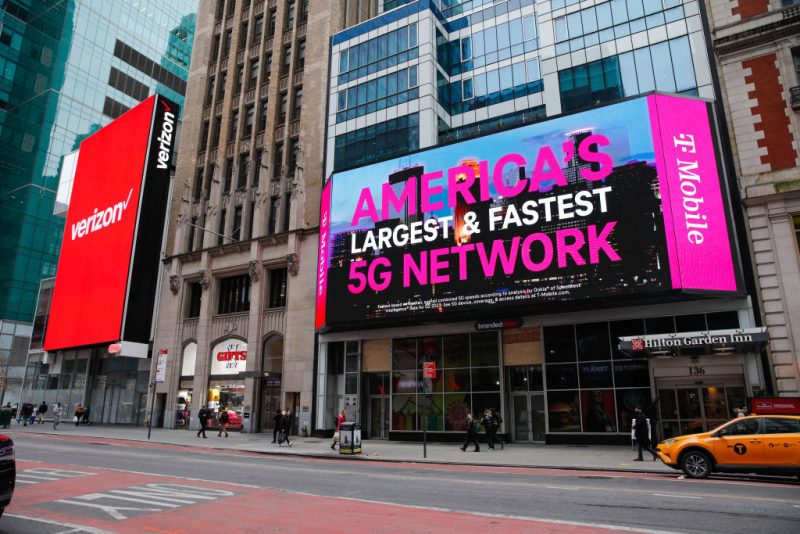Without Waze last month, many Americans were unable to navigate beyond their driveways. Without the Starbucks application, many interacted with their baristas face to face for the first time in years. Without voice call capabilities, at least a few teenagers picked up a telephone connected by a wire running to a wall outlet for the first time.
The widespread cellular service outage on Feb. 22 inconvenienced millions of AT&T, T-Mobile and Verizon customers across the country. Whether caused by nation-state actors, such as China’s Volt Typhoon, or human error, or an act of nature, the direct and radiating effects of the outage were a stark reminder of the dependency most Americans have on our cellular infrastructure.
On an ordinary day, living without smartphones will delay, disrupt or cancel many daily activities. Feb. 22 was such a day. Yet there are days we could anticipate when outage effects might have extraordinary impact, such as travel over the Thanksgiving holiday, or maintaining contact with children on Halloween. Outages on those days might result in significant delays or anxious parents, but the effects would likely be personal and limited.
There are other days, however, when loss of connectivity could have devastating effects on democracy and national security. Were such an outage to happen in the United States this November on Election Day, it could disenfranchise millions and have long-lasting and destabilizing political, social and strategic effects.
It is difficult to forecast all the effects a mass cellular service outage would have on a U.S. election, but it is an exercise that government officials and voters should undertake immediately. Regarding local and personal effects, many voters might not be able to find their polling places, rides for elderly and infirm voters would be more difficult to organize and communications between election workers, law enforcement and other government officials might not be coordinated in time to handle problems or report results as expected.
Regarding national and international effects, a cellular network outage on Election Day may have far greater impact. In addition to the challenges of a close or contested presidential election, much hangs in the balance in congressional races. A cellular network outage impacting only left or right-leaning districts in a few metropolitan areas may be enough to shift the majorities in both chambers of Congress. This would significantly impact social programs, military spending and immigration policies, driving a wedge in an already fragile and partisan system.
Among the potential outcomes of an outage on Election Day, political parties could be expected to accuse their opponents of manufacturing the event or colluding with an adversary, especially if outages arise in geographic areas favoring one party. Losing candidates would likely claim, with or without justification, that they would have won but for the outage. These accusations may have become routine in recent elections, but an Election Day outage might give the accusations greater plausibility, if not accuracy.
Well beyond Election Day, everyone from U.S. voters to world leaders might openly question the legitimacy of democratically elected U.S. officials, diminishing Americans’ faith in public institutions and America’s ability to exercise power internationally. An outage on Election Day could irreversibly change our national security posture and significantly impact our political system at every level, undermining the foundations of American democracy.
The critical problem exposed by this outage was not only the realization that life is more difficult in the absence of smartphone capabilities, but — more importantly — but also that there is no plan B. We are beholden to our devices.
Before the information age, civil society was able to proceed safely and efficiently without constant connectivity. Now, even those old enough to have lived without smartphones cannot be counted on to remember how to manage daily activities in their absence. In lieu of a navigation app, how many Americans had a paper map handy the morning of Feb. 22? How many had a landline in their homes? How many had a coffee maker in their kitchen when they discovered the Starbucks app would not work?
Individuals might not need to develop a formalized plan B to get their morning coffee, but the country and its voters need to have a strategy to handle a similar event were it to happen on Nov. 5, 2024. Individuals should know how to get to their polling places independent of their smartphones, and officials should know how to maintain communications and continue functioning. Early voting and mail-in ballots can mitigate the effects of an Election Day event, as can coordinating transportation in advance.

Election coordinators — from poll watchers to secretaries of state — should develop approved alternate lines of communication for official communications, such as keeping the public informed regarding locations and times for voting, requesting law enforcement support and reporting election results. These mitigations are a start, but much more thought and effort are required.
As of this writing, the cause of the outage is unknown. Whether attributable to a nation-state, human error or other causes, this outage should be treated as a warning that U.S. adversaries could seek to do the same when it would hurt America most. Almost every presidential election since 2000 has posed a novel test for democracy. With the latest reminder of an outage’s vast impacts, Americans should prepare now for interference this Election Day.
Michael McLaughlin co-leads the Cybersecurity and Data Privacy Practice Group at the law firm of Buchanan Ingersoll & Rooney, PC. He previously served as senior counterintelligence advisor for United States Cyber Command and chief of counterintelligence and human intelligence for the Cyber National Mission Force. Kurt Sanger is founder and director of Integrated Cybersecurity Partners, LLC. For 23 years he served as a judge advocate in the U.S. Marine Corps. His final post on active duty was deputy general counsel for United States Cyber Command.
Copyright 2024 Nexstar Media Inc. All rights reserved. This material may not be published, broadcast, rewritten, or redistributed.

